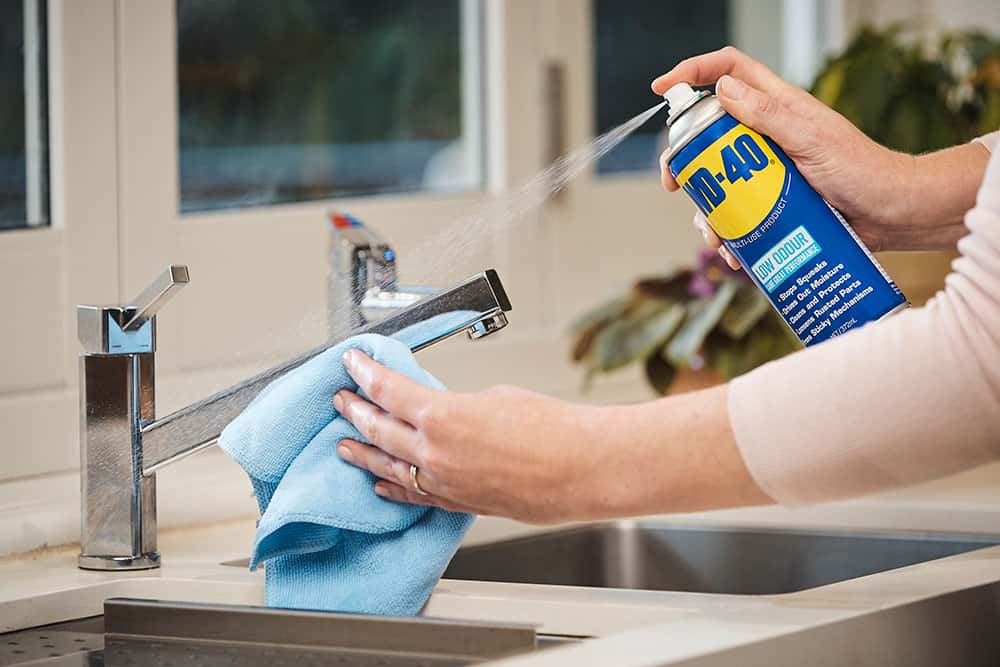Introduction: The Gleam of Stainless Steel
Stainless steel sinks are prized for their durability, sleek appearance, and resistance to corrosion. However, maintaining their lustrous shine requires proper care and cleaning techniques. In this guide, we’ll delve into the art of keeping your stainless steel sink sparkling like new.
Understanding Stainless Steel: The Basics
Before diving into cleaning methods, it’s essential to understand the nature of stainless steel. Despite its name, stainless steel is not entirely immune to stains or corrosion. It consists of iron, chromium, nickel, and other alloys, offering resistance to rust and tarnishing. However, it can still accumulate grime and lose its shine over time.

Preparation: Gathering Supplies and Tools
To effectively clean your stainless steel sink, assemble the necessary supplies and tools. These may include:
- Mild dish soap or specialized stainless steel cleaner
- White vinegar
- Baking soda
- Microfiber cloth or sponge
- Soft-bristled brush
- Olive oil or commercial stainless steel polish (optional)
Having these items readily available will streamline the cleaning process and ensure optimal results.
Regular Maintenance: Daily Care Routine
Maintaining a daily care routine is key to preserving the shine of your stainless steel sink. Here are some quick tips for regular upkeep:
- Rinse the sink after each use to prevent food debris from accumulating.
- Use a soft cloth or sponge with mild dish soap to wipe down the sink’s surface.
- Dry the sink thoroughly to prevent water spots and mineral deposits.
Incorporating these habits into your daily cleaning regimen will help prevent stubborn stains and maintain the sink’s brilliance.
Deep Cleaning: Removing Stubborn Stains
Despite regular maintenance, stainless steel sinks may develop stubborn stains over time. For thorough cleaning, follow these steps:
- Create a paste by mixing baking soda with water until it forms a thick consistency.
- Apply the paste to the stained areas of the sink, gently scrubbing with a soft-bristled brush.
- Rinse the sink thoroughly with water.
- For tougher stains, dampen a cloth with white vinegar and wipe the affected areas.
- Rinse again and dry the sink with a clean cloth to reveal its renewed shine.
This deep-cleaning process effectively eliminates stubborn stains and restores the stainless steel sink’s brilliance.
Polishing: Enhancing the Shine
To enhance the luster of your stainless steel sink, consider polishing it periodically. Here’s how:
- Apply a small amount of olive oil or commercial stainless steel polish to a soft cloth.
- Gently rub the polish onto the sink’s surface, following the grain of the stainless steel.
- Buff the sink until it shines, adding more polish as needed.
- Wipe off any excess oil or polish with a clean cloth for a streak-free finish.
Polishing not only adds shine but also forms a protective barrier against future stains and water spots.
Preventive Measures: Maintaining Long-Term Brilliance
In addition to regular cleaning and polishing, adopting preventive measures can prolong the shine of your stainless steel sink:
- Avoid using abrasive cleaners or scouring pads, as they can scratch the sink’s surface.
- Use cutting boards and mats to protect the sink from scratches and dents caused by sharp utensils.
- Promptly address any spills or stains to prevent them from becoming ingrained.
- Periodically check and tighten the sink’s fixtures to prevent leaks or water damage.
By incorporating these preventive measures into your routine, you can ensure that your stainless steel sink maintains its brilliance for years to come.
Conclusion: A Gleaming Finish
Mastering the art of cleaning your stainless steel sink requires diligence, patience, and the right techniques. By following the steps outlined in this guide, you can achieve a gleaming finish that enhances the beauty of your kitchen. With regular maintenance, deep cleaning, polishing, and preventive measures, your stainless steel sink will continue to shine bright for years to come.


